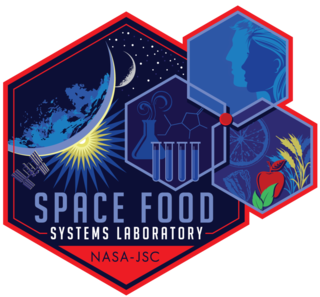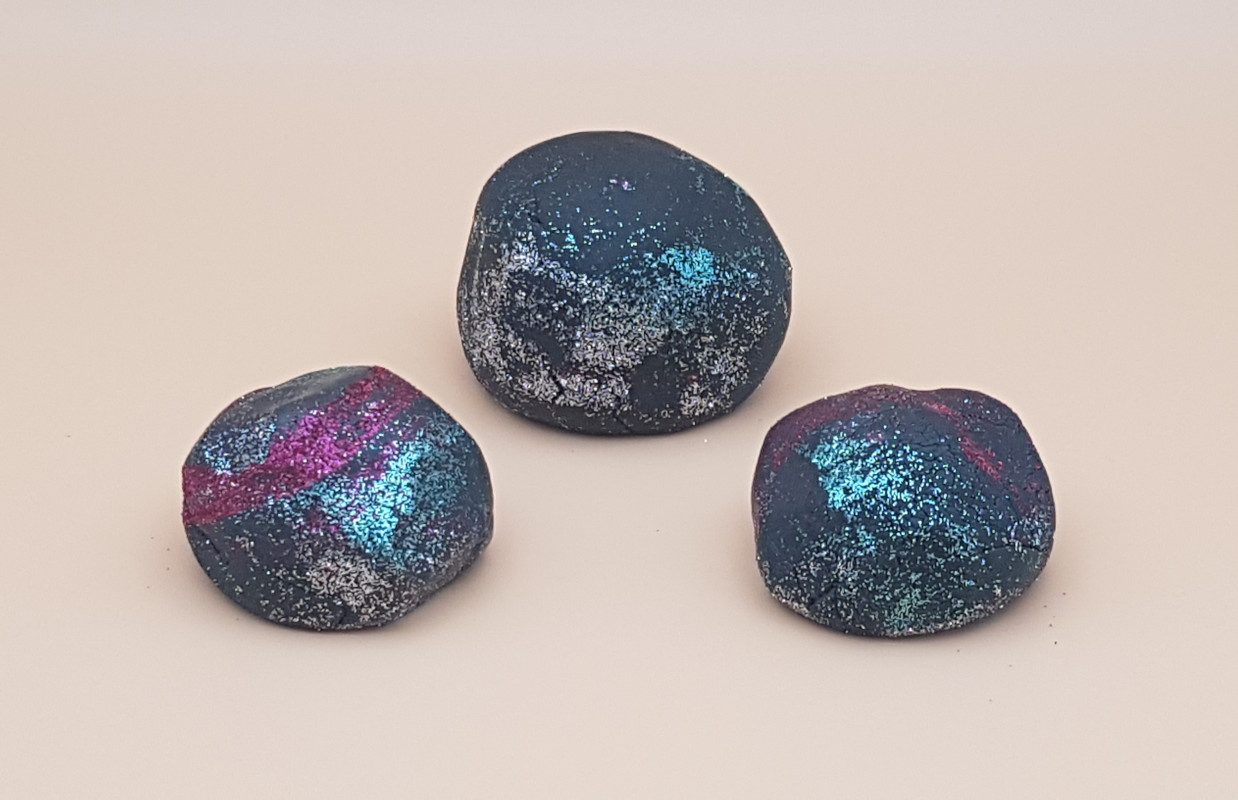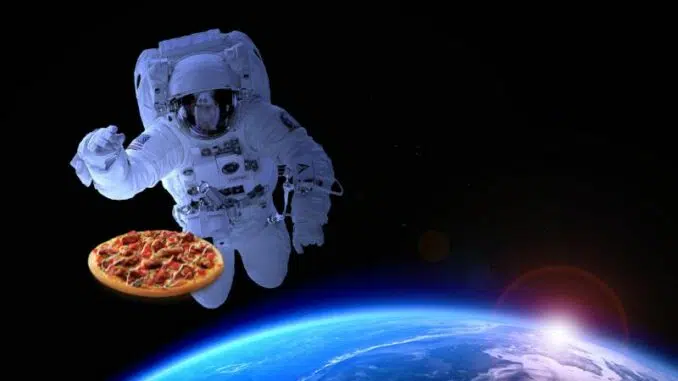
Laura TURCULET
You may be familiar with Thomas Pesquet, the most experienced French astronaut. He spent 200 days in space; that must seem like an eternity! Especially if you don’t get to eat your favourite meals. Space food is different from that of Earth. To complete their mission successfully and to gain enough strength, astronauts must follow a particularly nutritious diet onboard the space station. They may have the opportunity to eat in starry skies every day, but their meals are not starred.
The First Starry Meals
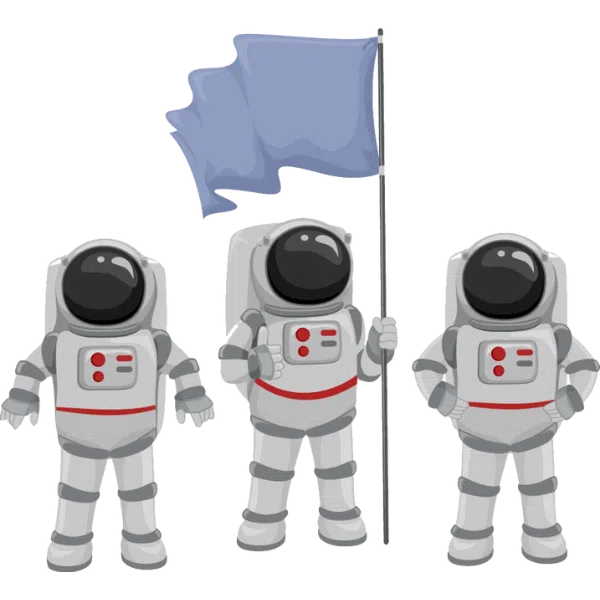
At the beginning of the 1960s, space food was generally freeze-dried or reduced to a paste in tubes. In space, astronauts would add hot water to plastic bags which contained their food. This type of packaging is called a ‘spoon-bowl packet’: all you have to do is dive your fork in there! In 1969, in an interview for the newspaper Nutrition Today, astronauts said that space food was tasty and enabled them to ease their hunger and work.
Space meals have changed a lot since then. Nowadays, they are similar to what you eat on Earth. Astronauts receive veggies, desserts, refrigerated food, fruit and dairy products. On the International Space Station (ISS), the modern menu features hundreds of meals. Astronauts can even add condiments, such as ketchup or mustard, to their meals.

Astronaut or Cosmonaut ?
An astronaut is someone who travels and works in spacecraft in outer space. The word “astronaut” is used in the English world. While in Russia, they use “cosmonaut” word. In China, they have “taikonauts”.
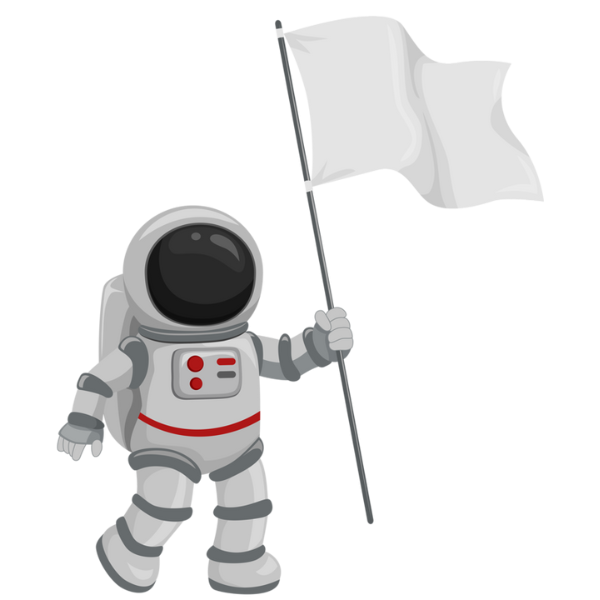
What Kind of Food Can Be Sent to Outer Space?
Science and technology made space food look like what we eat on Earth. Several types of food are sent:
- Dehydrated food and drinks, such as lemonade and spinach.
- Fresh food, like fruit and veggies that must be eaten quickly.
- Vitamins and nutrients; good for the mood.
- Irradiated food, such as meat and dairy products.
- Intermediate moisture food, like dried fruit.
- Natural food, such as nuts, biscuits, or chocolate bars.
- Thermostabilized food, like tuna salad or pudding.

Freeze-drying:
That technique involves freezing products before extracting the water they contain.
Food dehydration:
Water is extracted from food on Earth. In outer space, astronauts add hot water to that food to eat it.
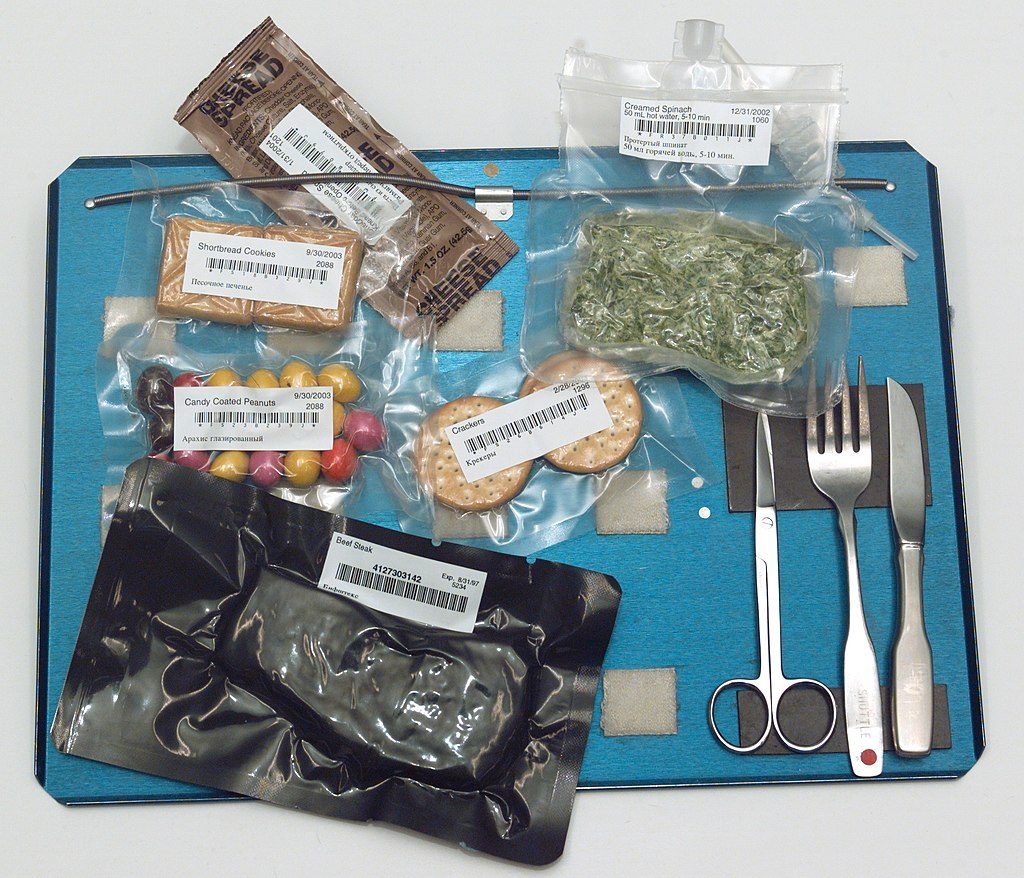
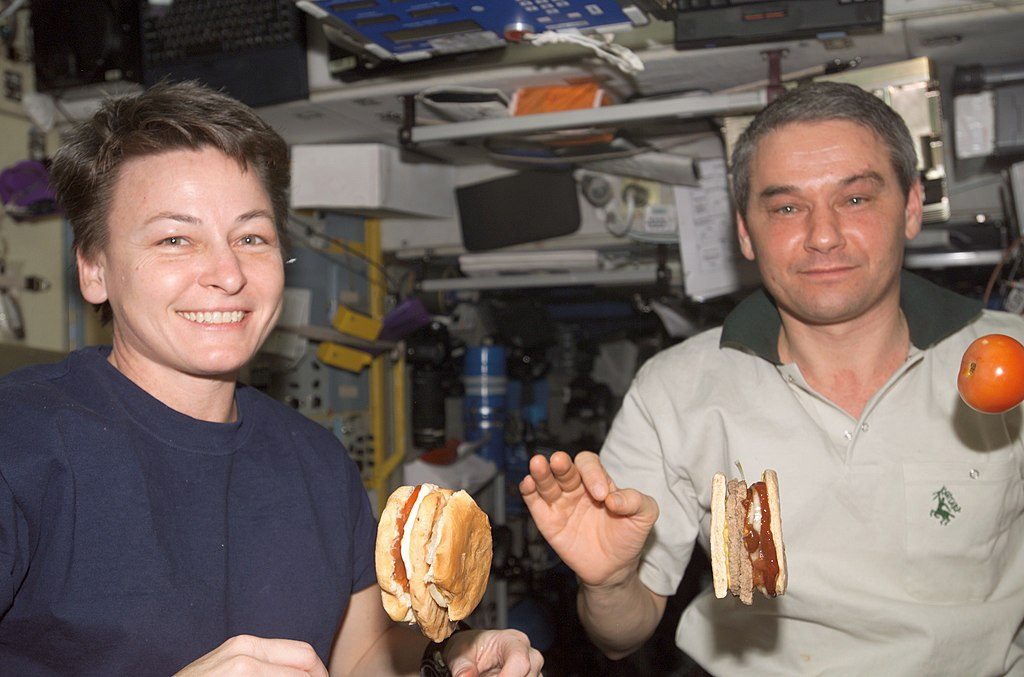
Food is processed in different ways to avoid contamination and rot, but also to increase their shelf life.
Space food must meet strict criteria: it must be nutritious, lightweight, compact, easy to eat and digest, tasty, healthy, well-packed and quick to prepare.
Space explorers must eat at least 2500 calories a day. Before setting out for the stars, they choose what they would like to eat each day. They have three meals a day and snacks whenever they feel like it.
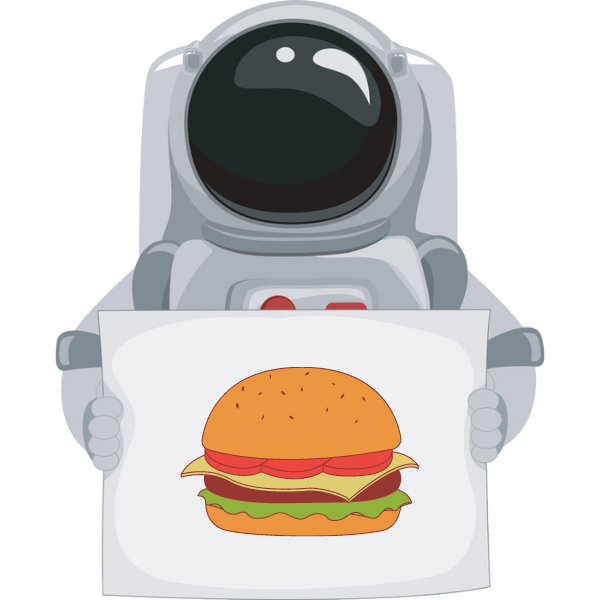
How is Space Food Sent to Outer Space?
Does the Human Body React the Same in Outer Space?
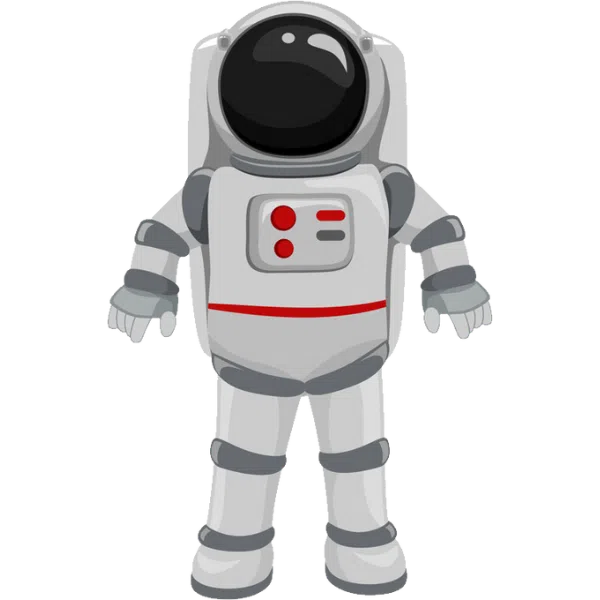
Gravity is not the same on Earth and in outer space. There, specialists call it ‘microgravity’. It causes many changes in the human body. During long space missions, astronauts can lose up to 20% of their muscle mass and bone density. They do not feel that loss when they are in orbit. But getting back on Earth can be hard: their bones may be so weakened that the risk of fracture increases. Exercise and foods rich in calcium, like yogurt, are key. Because of microgravity, the rate of phosphorus and nitrogen decreases in astronauts. Their food must therefore contain those nutrients in large quantities. To fly their missions, they shouldn’t get sick.
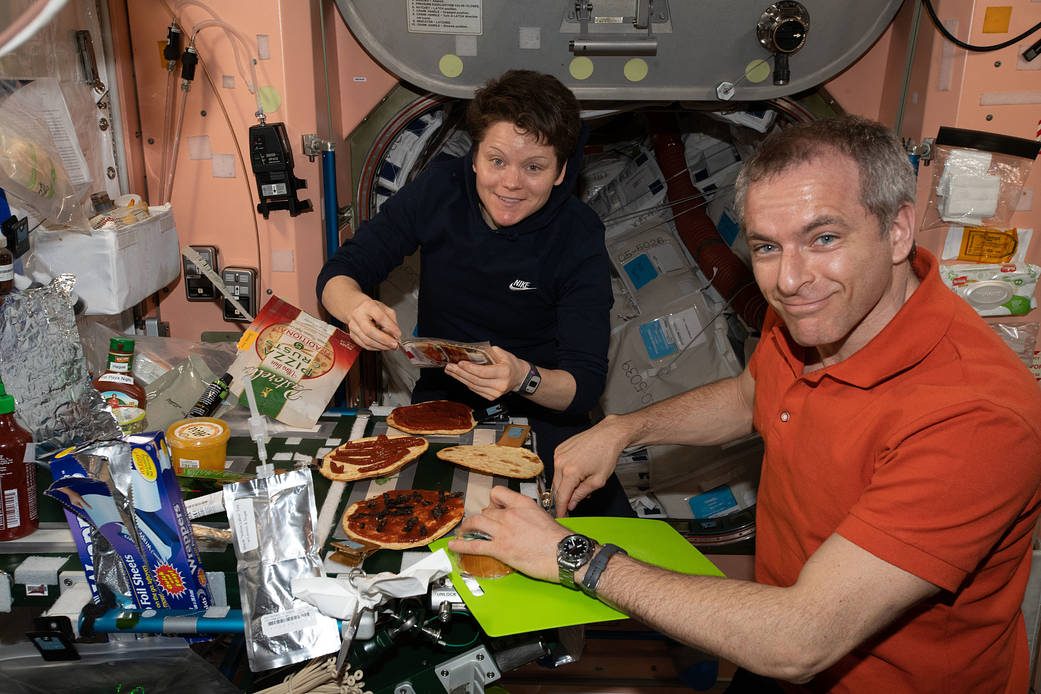
Did you know?
Astronauts can lose up to 20% of their muscle mass and bone density during their journey in space.
Fluids act differently in space. On Earth, the water in our bodies settles down to our feet. In microgravity, fluids are not subject to attraction. It feels like you have an everlasting stuffy nose. Food tastes bland. To improve the taste of their meals, many astronauts eat hot ingredients like chili peppers or wasabi.
Eating in Space
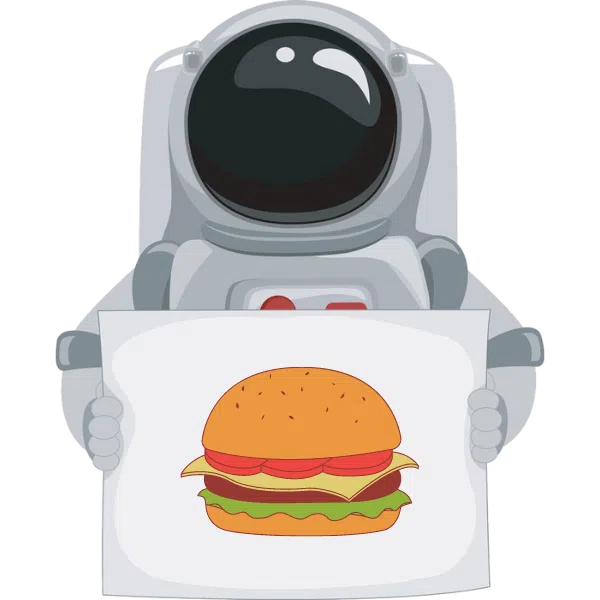
Eating in space is not as easy as it seems. In low-gravity conditions, catching peas with your fork is not the only challenge you can face.
Hot meals are cooked in the microwave or in the oven. The ISS is appointed with water stations to rehydrate meals and fill water bags.
In the ISS dining room, astronauts sit at a table on chairs glued to the floor. They can thus enjoy a meal in normal conditions. They strap themselves into the chairs and use cutlery to eat the food from a magnetized tray.
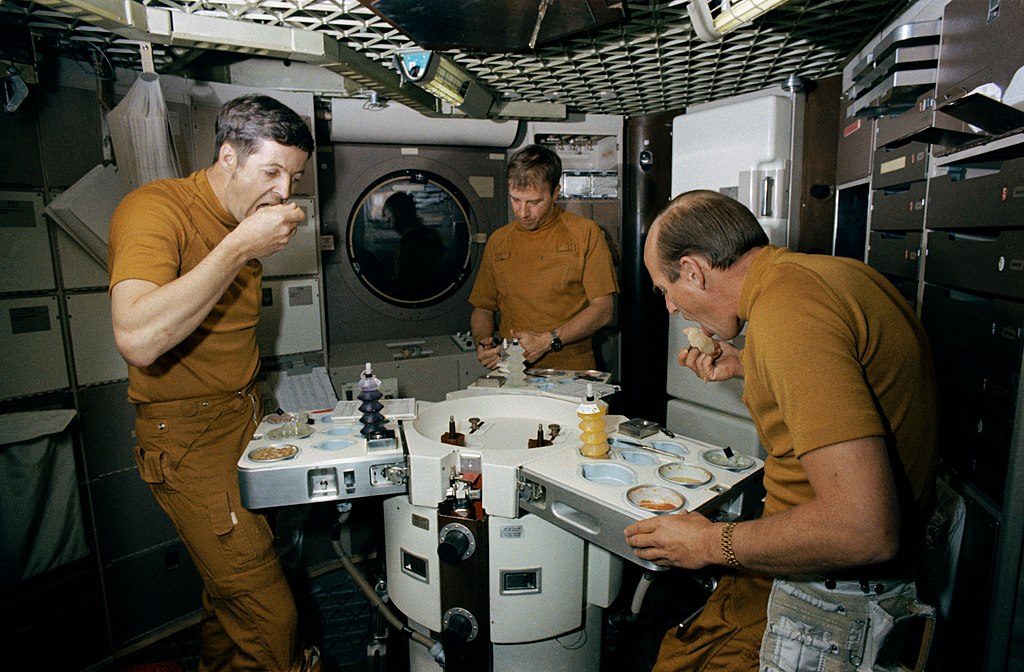
What About the Drinks?

Astronauts mostly drink water. They can also sip flavored drinks. Coffee, tea, lemonade, or orange juice are stored in vacuum-sealed pouches. Astronauts add water to the pouch to enjoy a good beverage.
In space, water flies away from its packaging because of microgravity. You have to use a straw to suck your drink.
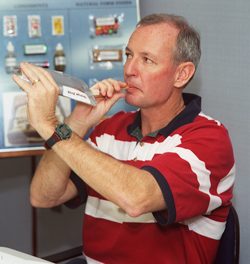

Zero gravity
In space, bodies are not attracted to the Earth anymore. That’s why astronauts float in the air. We talk about the zero gravity.

6 Incredible Facts on Space Food
- In space, pepper and salt are used in a liquid form! If astronauts sprinkled pepper and salt on their plates, the grains would float away. Moreover, these spices could clog air vents, contaminate gear, or get stuck in astronauts’ eyes, noses, or mouths.
- Edwin Aldrin, nicknamed ‘Buzz’, is the only astronaut who drank alcohol in space. He did that on the Moon! After that, NASA banned the use of alcohol on space missions. Astronauts must always remain alert and be able to react quickly if anything happens.
- Space brings astronauts together! They share specialties from their own countries with their mates.
- In 2014, the Italian Space Agency invented the ISSpresso, a coffee machine designed for space conditions.
- Yuri Gagarin is the first man to eat in space. He had beef and liver paste, as well as chocolate sauce served in a tube.
- For special occasions, astronauts are spoiled with a royal feast. The greatest Michelin-starred chefs slave over their hot stoves for these occasions.
So what, did space food make your mouth water?


